On 4 December 2014, a roundtable discussion was held on ‘Strengthening Special Administrative Institutions in the Chittagong Hill Tracts in line with the CHT Accord’ organized by Bangladesh Indigenous Peoples Forum and Kapaeeng Foundation at Azimur Rahman Conference Room of Daily Star Bhavan in Dhaka.
Honorable Chairman of Chittagong Hill Tracts Regional Council and also President of Bangladesh Indigenous Peoples Forum, Mr. Jyotirindra Bodhipriya Larma was present as Chief Guest. Among others Mr. Shohrab Hasan, Deputy Editor of the Daily Prothom Alo; Ms. Shaheen Anam, Executive Director of Manusher Jonno Foundation; Professor Dr. Sadeka Halim, former information Commissioner and professor of Dhaka University; Mr. Ushaton Talukder, MP, Member of the Parliamentary Caucus on Indigenous Peoples; Pir Fazlur Rahman Misbah, MP, Member of the Parliamentary Standing Committee on Ministry of Social Welfare; Mr. Sanjeeb Drong, General Secretary of Bangladesh Indigenous Peoples Forum were spoke as guest of honor. Mr Robaet Ferdous, Associate Professor of the Department of Mass Communication and Journalism (Dhaka University) presented the keynote while Mr. Rabindranath Soren, president of Kapaeeng Foundation presided over the discussion.
In his speech honorable chief guest Mr. Jyotirindra Bodhipriya Larma said that, the Chittagong Hill Tracts (CHT) Peace Accord would be implemented only if the person holding all the power in the country takes an initiative with the stakeholders.
He said that, it has been 17 years since the CHT Accord was signed and its major provisions are yet to be implemented. So now Jumma people think it was initiated just to take away the arms of the indigenous Jumma people. The democratic system is not strong in the country and there are many barriers to the implementation of the Accord but he blamed civil bureaucracy as the main barrier. “The deprived people in CHT will not sit idle if the government continues to delay the implementation of the accord. And it would not be wise for the government to consider them weak”, he said.
The local government would be empowered only if the central government is democratic and progressive. But here the government is not democratic enough and it does not allow local government institutions to be strong and functional, said Santu Larma. If 170 million people in Bangladesh do not respect the rights of the Indigenous People, they will extinct in the future.
Ushaton Talukdar, MP from Rangamati and a leader of PCJSS, said the organization members had talked to Prime Minister Sheikh Hasina several times over the issue and she seemed very much sincere in implementing the Accord. However, no visible action was taken in favor of it. He said that, we need to pressurize the government to implement the Accord. He also urged the government to make functional the Hill District Councils and CHT Regional Council to restore peace and stability in the CHT.
Lawmaker Pir Fazlur Rahman Misbah said, it has been 17 years already since the Accord was signed and only 5 meetings have been held in 17 years by the CHT Accord Implementation Committee and how it is possible to implement the Accord with only 5 meetings. The government signed the Accord and now it is its responsibility to implement it.
Mr. Sohrab Hassan, Deputy Editor of the daily Prothom Alo, questioned the necessity of 6 cantonments in the CHT. Another war being forced on the Indigenous Peoples by violating the human rights of the indigenous peoples by marginalizing them, and we do not want a divided nation rather we want a nation where all people can say it is our nation, he added. He urged the government to take immediate actions for strengthening the local administrative bodies and to ensure representation of local people in those institutions.
Shaheen Anam, Executive Director of Manusher Jonno Foundation said that we take pride in saying that Bangladesh is a diverse country but we failed to ensure the rights of the indigenous peoples, she added.
The government should implement the Accord without any further delay, said Sanjeeb Drong, general secretary of the Bangladesh Indigenous Peoples Forum while delivering his welcome speech at the discussion. He also urged the government to recognize the diversity and pluralistic character of the state.
Indigenous people also fought during the Liberation war, said Prof. Sadeka Halim but they were threatened when they try to access their fundamental rights. She added that present government of Bangladesh has the power to implement the peace accord. From 1972 since today the indigenous peoples are being colonized. There is demographic politics in CHT, there is 59% of indigenous people and 41% Bengalese and in the future the Indigenous people will be outnumbered.
Audience from the floor emphasize the issues of functional CHT land commission, demilitarization of the region, rehabilitation of India repatriated Jumma refugees and internally displaced people and election of the Hill Districts Councils and CHT Regional Council during open discussion.
Audience also expressed their concerns about land grabbing and land related disputes with the Bengali settlers. For avoiding these entire problems they urged to transfer power and function to the Hill Districts Councils to deal with these problems.
In his keynote, Mr. Robaet Ferdous, associate professor of Department of Mass Communication and Journalism of Dhaka University described the ground reality of CHT institutions without proper power and functions. He also mentioned about sidestepping of CHT Regional Council regarding the amendment of Hill District Councils Acts and enacting CHT Development Board Act in 2014. Further he described the vulnerability of indigenous women in the CHT, as they are the victims of violence. The practice of impunity to the perpetrators is the major concern in this regard, he further added.
Finally, Professor Robaet Ferdous recommended implementing the CHT Accord without further delay for establishing peace and security in the CHT. For this purpose government should declare time bound ‘road map’ for implementation of the Accord; continues dialogue and communication should be facilitated with leaders of the PCJSS, as one of the signatory party of the agreement for building trust; transfer the subjects of land and land management, local law and order etc. Otherwise, it would generate instability not only in the hills but also affect in the whole country.



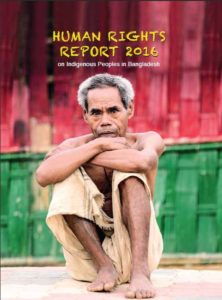
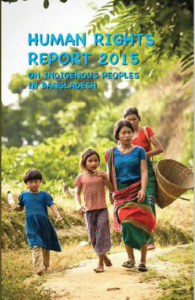
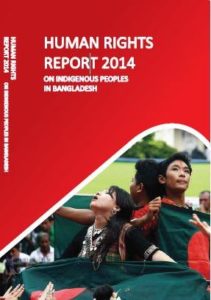
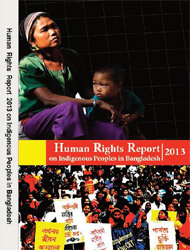
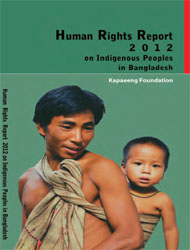
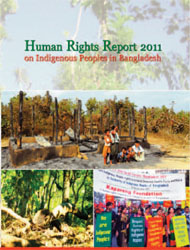
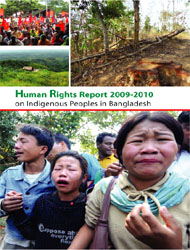

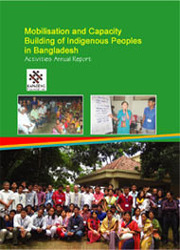




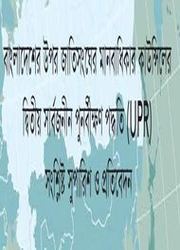
 December 6th, 2014
December 6th, 2014  KapaeengUser
KapaeengUser  Posted in
Posted in 